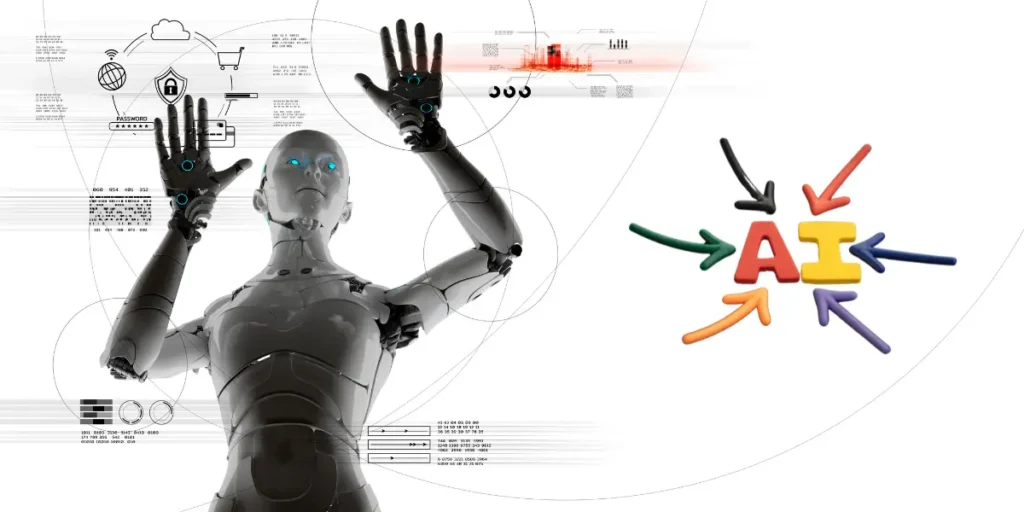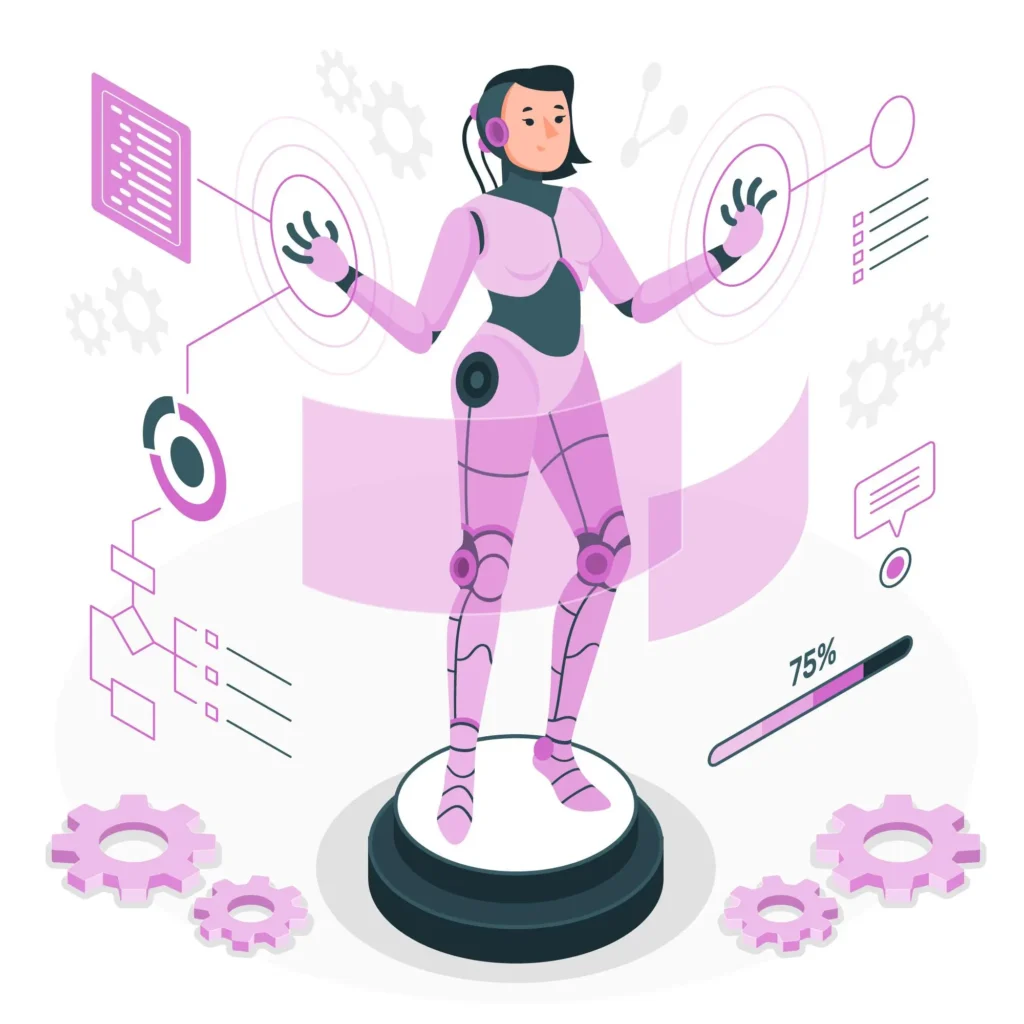
Introduction
In the ever-evolving landscape of digital advertising, Impact of Artificial Intelligence on Digital Advertisement Agency stands as a transformative force, reshaping strategies, optimizing campaigns, and revolutionizing the way brands connect with consumers. As technology advances, digital advertising agencies find themselves at the forefront of this AI-driven revolution, leveraging its capabilities to enhance targeting precision, personalize content, and drive unprecedented levels of engagement and conversion.
One of the most significant impact of Artificial Intelligence on Digital Advertising Agency is its ability to refine audience targeting. Traditional methods of demographic segmentation are being augmented, if not replaced entirely, by AI-powered algorithms that analyze vast amounts of data in real-time. These algorithms can identify subtle patterns and preferences among consumers, allowing agencies to tailor their messages with unparalleled precision. By understanding the nuanced behaviors of their target audience, agencies can deliver more relevant and compelling content, maximizing the effectiveness of their campaigns.
Furthermore, AI enables dynamic content optimization, a process that continuously adjusts ad creative and messaging based on user interactions and feedback. Through techniques such as A/B testing and multivariate analysis, agencies can rapidly iterate and refine their advertising content to maximize engagement and conversion rates. This iterative approach not only ensures that campaigns remain effective in the face of changing market dynamics but also enables agencies to uncover insights that can inform future strategies.
AI-powered predictive analytics also play a crucial role in helping digital advertising agencies anticipate market trends and consumer behavior. By analyzing historical data and identifying patterns, AI algorithms can forecast future performance with remarkable accuracy. Armed with these insights, agencies can proactively adjust their strategies to capitalize on emerging opportunities or mitigate potential risks, staying ahead of the competition in an increasingly crowded digital landscape.
Moreover, AI facilitates the automation of routine tasks, allowing agencies to streamline their operations and allocate resources more efficiently. From ad placement and bidding optimization to performance tracking and reporting, AI-driven tools and platforms handle a myriad of tasks that would otherwise require significant time and manpower. By reducing manual workload and human error, agencies can focus their energy on high-level strategic initiatives, fostering innovation and driving business growth.


The Role or Impact of Artificial Intelligence in Digital Advertising Agency
At its core, artificial intelligence refers to the simulation of human intelligence processes by machines, particularly computer systems. In the context of digital advertising, AI technologies analyze vast amounts of data, identify patterns, and make data-driven decisions in real-time. From audience targeting to ad creation and performance analysis, AI is reshaping every aspect of the advertising workflow, offering unprecedented opportunities for agencies to optimize their strategies and deliver more impactful campaigns.
Enhanced Targeting and Personalization:
One of the most significant advantages of AI in digital advertising is its ability to hyper-target audiences with personalized messaging. AI-powered tools leverage machine learning algorithms to analyze user behavior, demographics, and preferences, allowing advertisers to deliver highly relevant ads to individual consumers. By segmenting audiences based on granular data insights, advertising agencies can increase engagement, conversion rates, and return on investment for their clients.
Automating Ad Creation and Optimization:
Traditionally, creating and optimizing digital ads has been a time-consuming and labor-intensive process. However, AI-powered tools such as automated creative optimization platforms and generative algorithms are changing the game. These technologies can generate and test thousands of ad variations in real-time, automatically adjusting elements such as copy, imagery, and calls-to-action to maximize performance. By harnessing the power of AI for ad creation and optimization, advertising agencies can save time, reduce costs, and improve campaign outcomes.
Improving Campaign Performance with Predictive Analytics:
Predictive analytics, another application of AI in digital advertising, enables agencies to forecast future trends and outcomes based on historical data and real-time insights. By analyzing past campaign performance, market trends, and consumer behavior patterns, AI algorithms can identify opportunities and risks, allowing advertisers to make data-driven decisions and optimize their strategies proactively. With predictive analytics, advertising agencies can anticipate changes in the competitive landscape, optimize media buying strategies, and allocate resources more effectively to achieve their clients’ objectives.
Streamlining Workflow Processes:
In addition to enhancing campaign execution, AI can also streamline workflow processes within digital advertising agencies. AI-powered project management tools automate task assignments, track progress, and identify potential bottlenecks, enabling teams to collaborate more efficiently and deliver campaigns on time and within budget. Furthermore, AI-driven content management systems streamline content creation, distribution, and optimization, allowing agencies to scale their operations and meet the growing demands of clients in an increasingly competitive market.
Ensuring Ad Compliance and Brand Safety:
Maintaining ad compliance and brand safety is paramount for digital advertising agencies, particularly in an era of heightened scrutiny and evolving regulations. AI-powered tools help agencies monitor ad placements, detect fraudulent activity, and ensure that ads align with brand guidelines and industry standards. By leveraging machine learning algorithms for real-time monitoring and analysis, advertising agencies can mitigate the risk of ad fraud, inappropriate content, and reputational damage, thereby safeguarding their clients’ interests and preserving brand integrity.
Leveraging AI for Strategic Decision-Making:
Beyond its operational applications, AI also empowers digital advertising agencies to make more informed and strategic decisions. By analyzing market trends, competitive intelligence, and consumer insights, AI-driven predictive modeling tools can inform campaign strategy development, media planning, and resource allocation. Moreover, AI-powered attribution modeling helps agencies understand the impact of various touchpoints on the customer journey, enabling them to optimize marketing spend and drive higher returns for their clients.
Challenges and Ethical Considerations:
While the potential benefits of AI in digital advertising are vast, there are also challenges and ethical considerations that agencies must navigate. Privacy concerns surrounding data collection and usage, algorithmic bias, and transparency in AI decision-making are just a few of the issues that require careful attention. Moreover, as AI becomes increasingly integrated into advertising workflows, agencies must ensure that they have the necessary expertise and resources to leverage these technologies responsibly and ethically.
In conclusion, artificial intelligence is poised to revolutionize the digital advertising landscape, empowering agencies to deliver more targeted, personalized, and impactful campaigns for their clients. From enhanced audience targeting and automated ad optimization to predictive analytics and streamlined workflow processes, AI offers unparalleled opportunities for agencies to drive better results, optimize resources, and stay ahead of the curve in a rapidly evolving industry. By embracing AI and addressing the associated challenges with diligence and integrity, digital advertising agencies can position themselves for long-term success in the dynamic and competitive world of digital advertising.
